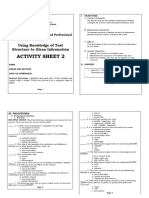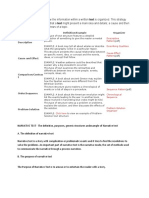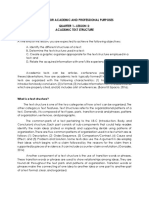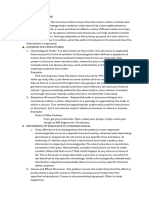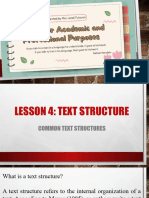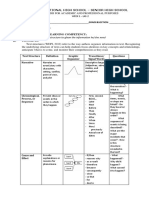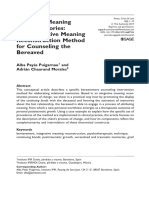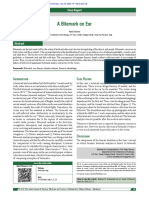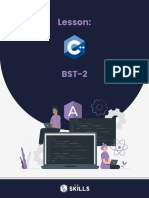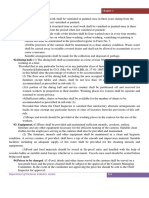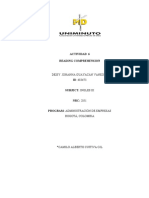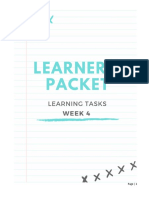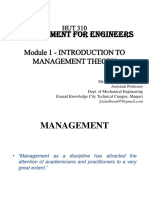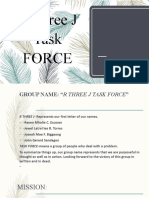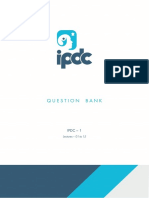EAPP NAME: SECTION:
LESSON 2: TEXT STRUCTURE
Text structure refers to how the information within a written text is organized. This strategy
helps us understand that a text might present a main idea and details; a cause and then its effects;
and/or different views of a topic.
Text structure refers to the way an author arranges information in his writing. Text structure
enables authors to organize their thoughts as they write. It also helps the reader as it provides a
structure in which information can be found and understood while it's being read.
Text structure is essential because it will serve as guide for the reader to understand what
the author wants to communicate.
Types of Text Structure
1. Description – this type of text structure features a detailed description of something to give the
reader a mental picture.
2. Problem and Solution- this type of structure sets up a problem or problems, explains the
solution, and then discusses the effects of the solution.
3. Sequence – this text structure gives readers a chronological sequence of events or a list of
steps in a procedure.
4. Cause and Effect- this structure presents the causal relationship between a specific event,
idea, or concept and the events, ideas, or concepts that follow.
5. Compare and Contrast- this type of text examines the similarities and differences between two
or more people, events, concepts, ideas, etc.
6. Narrative- this type describes an event/story with characters, setting, conflict, point of view, and
plot.
Organization and Text Structure Signal Questions and Signal Words
Cause and Compare Sequence Problem Narratives Description
Effect and and
Contrast Solution
Signal Questions
What What things What items, What is the Who is the What specific
happened? are being events or problem? narrative topic, person,
Why did it compared? steps are Why is this a about? idea or thing is
happen? In what ways listed? problem? Where is it being described.
What does it look
What caused it are they Do they Is anything set?
like, how does it
to happen? alike? have to being done to What is work, what does
In what ways happen in solve the the conflict? it do, etc?
are they this order? problem? Who is What is
different? Do they What can be telling the important to
always done to solve narrative? remember about
happen in this problem? What is it?
this order? happening?
Signal Words Examples
So Same as First Question is… Descriptive For instance
Because Similar Second Dilemma is… language Such as
Since Alike Next The puzzle (adjectives, To begin with
Therefore As well as Then is… adverbs, An example
If…. Then Not only…. But Before To solve this… similes, and To illustrate
This led to also After One answer metaphors) Characteristics
Reason why Both Finally is…
As a result Instead of Following One reason for
Maybe due to Either… or Not long the problem
Effect of On the other After is…
Consequently hand Now
For this reason Different from soon
As opposed to






















